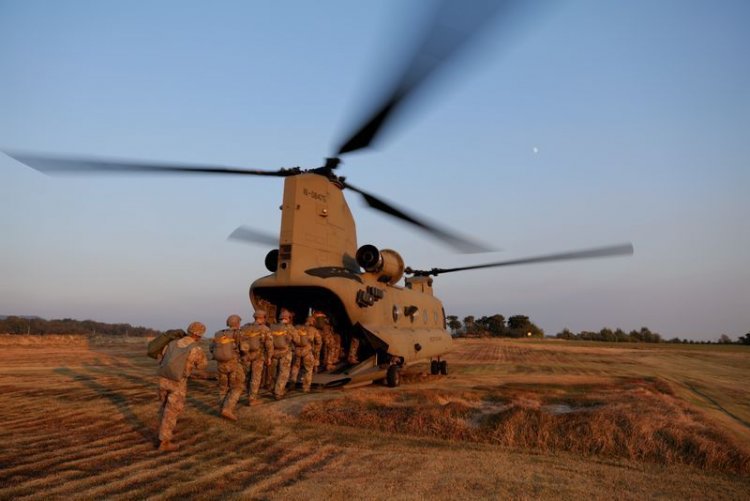South Korea Hopes Positive for The Military Cost Sharing Dispute as Biden Wins

Seoul: With Joe Biden’s projected victory in the U.S. presidential election, South Korean officials are expecting a win of their own in a drawn-out, multi-billion-dollar dispute with Washington over the cost of thousands of U.S. troops on the peninsula.
Officials and experts in Seoul don’t expect Biden to entirely drop the demand that South Korea pay more toward maintaining the roughly 28,500 U.S. troops that are stationed in the country as a legacy of the technically unfinished 1950-1953 Korean War.
But Biden has promised not to use the troop presence to “extort” South Korea, and South Korean government sources say they anticipate his administration would agree to a deal close to Seoul’s proposal to pay 13% more, or around $1 billion per year.
Outgoing U.S. President Donald Trump demanded much as $5 billion as part of a broader push to get allies to contribute more towards defence.
A Biden campaign spokesman declined to comment, and South Korean officials say it’s unclear how deeply his team has thought about the exact outlines of a new Special Measures Agreement (SMA).
“But the 13% increase discussed in past negotiations could be considered reasonable,” said one South Korean government official, who spoke on condition of anonymity to discuss diplomatic negotiations.
“We will know more when we actually sit down with their team after the new administration names a new negotiator or reappoints the incumbent, but at least there is more predictability now and a Biden White House wouldn’t veto a nearly done deal at the last minute,” the official added.
In April, Reuters reported Trump had rejected that 13% proposal, which was seen as probably Seoul’s best offer ahead of its parliamentary elections that month.
The impasse has strained the alliance in almost unprecedented ways, experts say. It comes as North Korea pushes ahead with its weapons programmes, including state-of-the-art weapons designed to target South Korea, as well as long-range, nuclear-capable missiles that may now put the entire United States within range.















































